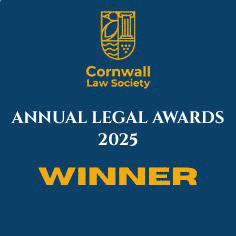- by
Will disputes concerning the family business
A Will should be a true reflection of a person’s wishes. However, situations sometimes arise where there is doubt cast upon the validity of a Will. Disputes concerning Wills are referred to legally as Contested or Contentious Probate. This type of dispute becomes especially complex where a business is involved and can become even more difficult and emotionally charged when it affects a family business. Disputes solicitor Tegan Pownall explores this topic.
What are the grounds to contest a Will?
There are very specific grounds set out in UK Law where it is possible to contest the validity of a Will – these include lack of capacity, undue influence, and fraud. Furthermore, promises made by the deceased during their lifetime may have a substantial effect on the Estate Administration, and of course usually result in an argument made commonly found in farming families, leading to Proprietary Estoppel claims. We go into more detail about these grounds in our blog What are the ground to contest a Will? Interestingly, claims against Estates have been rising in recent years, as the asset rich baby boomer generation reach their later years.
At what stage can I contest a Will?
Time is usually of the essence when contesting a Will, to avoid the deceased’s assets being distributed. It is best to challenge Will validity before Probate is granted, as it is much harder to prove this type of claim once a grant has been issued. Typically, claimants enter a caveat to prevent the issue of Probate whilst the matter is being resolved.
If you consider that the Will is valid, but you have not received a legacy that you may have expected, you may consider a claim under the Inheritance (Provision for Family and Dependants) Act, such must be brought within six months of a Grant of Probate being issued. It is therefore important to seek advice as soon as you can after a person has died.
Probate for the Estate of a Business Owner
When a person dies, everything they own including property, money, investments and any business or share of a business which they own, is referred to as part of their ‘Estate’.
The type of business asset will dictate how it is administered during the Estate Administration, depending on how the business has been set up when the deceased was still alive.
Sole Traders and Partnerships, for example, both have unlimited liability, whereby the owners are personally responsible for the debts of the business but also receive a share of any profits. A Sole Trader’s business would form part of their Estate and be dealt with according to their Will, or if they die without a Will, under the Rules of Intestacy.
With a Partnership, each partner must pay their share of tax due depending on the profit they have made, and a Partnership Agreement, or Deed of Partnership, should set out what each partner has contributed and what they are liable for. However, it is not uncommon for partnerships to arise without the benefit of supporting documentation leading to complex calculations and administration. We recommend partners seek a Partnership Agreement.
In the case of Limited Companies, the business owner has limited liability subject to a small number of statutory exemptions, which means the business itself takes on the debts / profits and as such is separate from the financial situation of the owner(s).Legal advice should be sought when dealing with any Estate involving a Partnership or Limited company. Even a Sole Trader’s business can be more complicated than you might expect, so it is often pragmatic to seek legal advice with Probate in this scenario too.
Do existing business agreements supersede a Will?
If a business agreement such as a Shareholder’s Agreement or Deed of Agreement has been put in place, then it is important to ensure that your Will is consistent with these existing documents. For example, a Share Agreement may dictate what happens on death no matter what your Will says. There have been cases whereby the documents are at odds with each other, meaning that your loved ones may find themselves either facing a claim from those who feel they have inadvertently missed out on their rightful inheritance, or being overlooked themselves.
Contesting an Estate on the grounds of Proprietary Estoppel
A common reason to contest an Estate Administration, particularly within farming families, is known as Proprietary Estoppel. Rather a mouthful to pronounce, this is a legal principle, designed to prevent unfair situations resulting from promises made informally which are subsequently reneged upon. It is often seen in faming families where the younger generation have been promised they will receive the farm as an inheritance in return for working in the family business. Should the Will fail to fulfil a promise made by the deceased on the basis of a benefit received, a person may seek to recover the same. You can read more about Agricultural Disputes here.
Business as usual? – Why you need a Business Lasting Power of Attorney
If you run your own business, another thing you should consider putting in place alongside your Will, is a Business Power of Attorney. Notably, this is planning for problems in your lifetime but none the less just as important as problems arising on death. Most people have heard of a Power of Attorney, or Lasting Power of Attorney as they are now known. However, many business owners perhaps haven’t considered, or don’t want to consider, what would happen should they become unable to run their business. Having a plan in place to cover a situation where you lose capacity can also sometimes be a regulatory requirement or needed for insurance purposes. You can read more about Business LPAs in our blog here.
Get in touch
If you would like to speak to us regarding disputing a Will which includes a business, or would like advice on Estate Planning if you are a business owner, our friendly and experienced team would be pleased to hear from you. You can reach us by calling 01872 241408 or email info@penderlaw.co.uk








